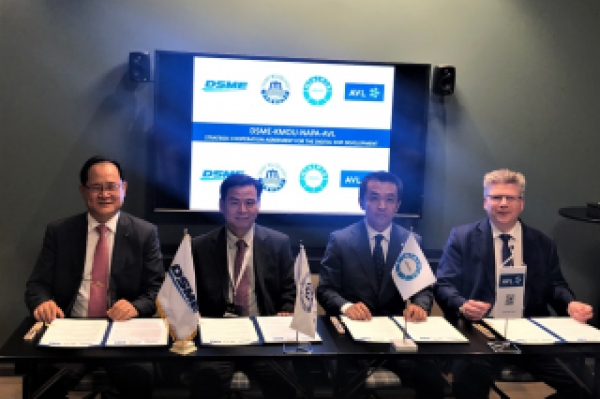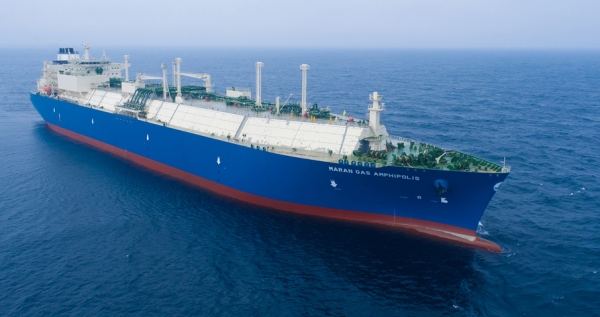News
Latest news
DSME, NAPA, KMOU, and AVL Team Up on Developing Digital Ships
Daewoo Shipbuilding and Marine Engineering (DSME), Korea Maritime and Ocean University (KMOU), NAPA and AVL have signed a strategic cooperation agreement to develop digital ships and related strategic solutions.
The deal was signed at Nor-Shipping 2019 exhibition in Oslo held from June 4 to 7.
As explained, the agreement will combine the four parties’ expertise in naval architecture and shipbuilding, engines, big data, and software development to pioneer new solutions that combine all of these elements for the first time.
Specifically, the collaboration will cover all aspects of creating comprehensive digital twins — from the acquisition and processing of quality engine room data, ship performance and meteorological data to the training, simulation and human machine interface that will be necessary to turn insights from engine data into practical efficiencies.
“The development of digital twin ship and engine is one of the most exciting outcomes of the recent surge in maritime digitalization and development of the Internet of Things. By creating a virtual, real-time copy of engine equipment, we can better monitor, analyze, and predict performance, leading to safer and more efficient operations,” Odin Kwon, CTO of DSME, commented.
“Digital twins bring together a range of different fields of expertise, requiring hardware, software and operations to work together. This is why collaboration is essential if this technology is to mature… We’re excited to work together to develop digital twin technology and a platform that will make future generations of ships safer and smarter,” Kwon added.
“We are actively entering into digital era in the industry nowadays which could be a basis for the development of autonomous ship. Building a digital platform should be well balanced between actual application of technology and academic basis,” Professor Deog Hee Doh from KMOU said.
He further said that KMOU faculty members have started developing a platform in which AR/VR and digital twin technology are embedded. According to the professor, the university will focus on providing a knowledge-based platform in the fields of simulations and communications related to digital ships extending to AR/VR.
“New generations of vessels will set the standard for decades to come, and digital infrastructure will be just as important as the physical and mechanical elements of a newbuild,” Naoki Mizutani, Executive Vice President, Shipping Solutions at NAPA, noted.
Each partner brings a different angle to the collaboration, coordinated by DSME. NAPA will develop digital twin ship models with digitalized components and a real-time simulation platform to integrate between engine models and ship models.
Meanwhile, AVL will develop the simulation tools and methodologies that the partnership projects will require.
Additionally, KMOU will contribute by providing the existing infrastructure as a basis for further development and optimization.
Reference: worldmaritimenews.com
DSME Wins Another LNG Carrier Order from Maran Gas
South Korea’s Daewoo Shipbuilding & Marine Engineering (DSME) has secured another LNG carrier order from Maran Gas Maritime.
The Greece-based shipowner, part of Angelicoussis Shipping Group, ordered the 174,000 cbm unit on June 12. The vessel will be built at Geoje Okpo Shipyard and is scheduled for delivery by the first half of 2022.
With the latest order, DSME secured six LNG carriers this year, five of which would be built for Maran Gas Maritime. The parties are in discussions for more such shipbuilding contracts.
The shipbuilder’s orderbook also includes six super crude oil carriers and three submarines, and has a total value of around USD 2.69 billion. The number represents 32% of DSME’s 2019 annual orderbook goal of USD 8.37 billion.
Reference: worldmaritimenews.com





















